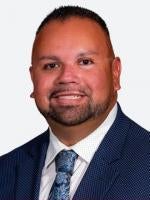On January 1, 2024, Illinois will join Maine and Nevada as the only U.S. states to mandate that covered employers provide their employees with earned paid leave that can be used for any reason. Generally, the Paid Leave for All Workers (PLFAW) Act entitles most employees who work in Illinois with up to 40 hours of paid leave for a 12-month period to use at their discretion.
Employers will be prohibited from requiring employees to explain why they are taking leave and to provide supporting documentation. Employees may decide how much of their accrued paid leave to take, but an employer’s policy may require that employees take a minimum of two hours of paid leave per occurrence. Employers may develop a notification policy; however, the policy must be reasonable and subject to the following limitations to comply with the new law:
-
If use of paid leave is foreseeable, employers may require employees to provide 7 calendar days' notice before the date the leave is to begin.
-
If use of paid leave is not foreseeable, employers may require employees to provide notice of the leave as soon as is practicable after the employee is aware of the necessity of the leave.
In addition, employers will be prohibited from requiring employees to search for or find a replacement worker to cover the hours during which the employee takes paid leave.
The paid leave will accrue at the rate of one hour of paid leave for every 40 hours worked; however, employers may opt to frontload employees with 40 hours or a pro-rata share of paid leave at the start of the 12-month period. Exempt employees whose workweek is routinely 40 hours are deemed to work 40 hours per week for purposes of accruing paid leave.
Paid time off under the PLFAW Act must be paid at the employee’s regular hourly rate of pay; however, special rules apply for employees who earn tips and/or commissions. Employees may begin using accrued paid leave 90 days after the start of employment or on April 1, 2024, whichever is later.
Certain employers will be excluded, including, for example, those with certain student or short-term employees who are employed at an institution of higher education; employees of school or park districts; certain transportation and construction employees; and employees who are subject to a collective bargaining agreement that includes a clear and unambiguous waiver of the new law. Further, Chicago and Cook County employers that provide paid sick leave in accordance with the Chicago and Cook County ordinances on paid sick leave will not be required to provide an additional 40 hours of paid leave. And likewise, employers who already provide at least 40 hours of paid leave for any reason may not be required to provide any additional paid leave to employees if the leave provided aligns with the new statutory requirements.
The PLFAW Act contains many nuances, such as when the 12-month period under this new law begins, employer benefits for frontloading the paid leave, notification, posting and recordkeeping requirements, and whether unused accrued paid leave must be paid upon termination.





 />i
/>i

